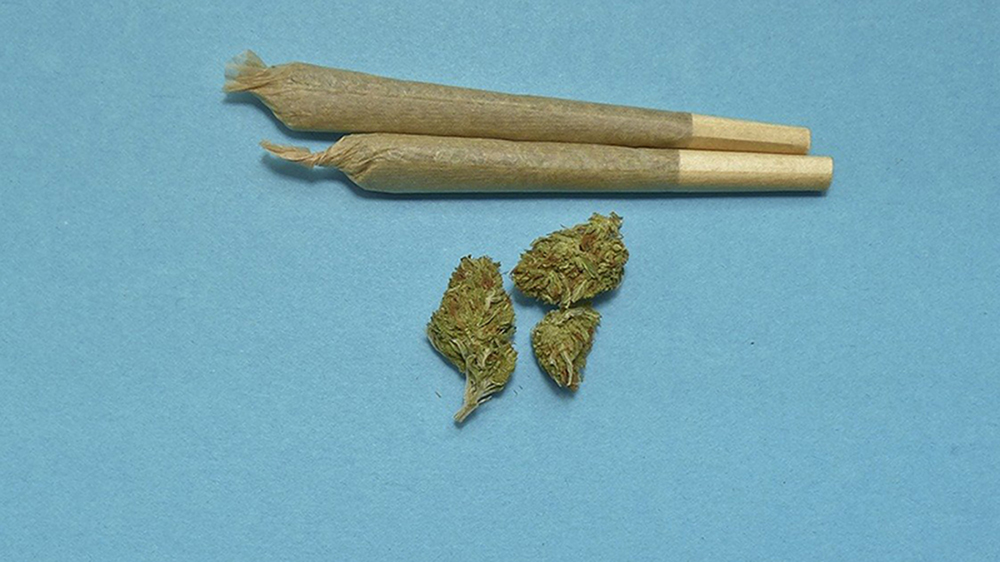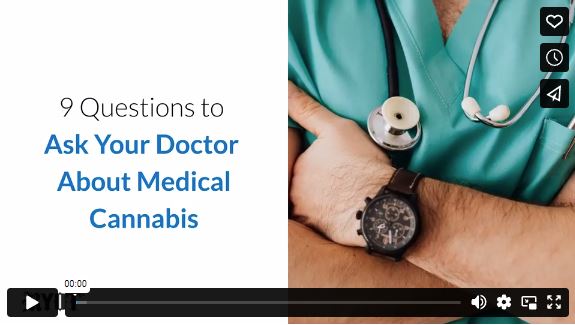Cannabis is a popular topic in the medical world because it shows such promising evidence for treating many common ailments. If you suffer from chronic illness or pain, you might be interested in the benefits of cannabis, but you’re not sure how to talk about it with your doctor. We’ve provided you with a list of questions you can ask your practitioner so that you get all of the facts you need to move forward with a treatment plan.
1. What makes medical cannabis different from recreational cannabis?
Technically speaking, both medical and recreational cannabis come from the same plant. The only real distinction is your purpose for using cannabis.
2. What conditions can medical cannabis help treat?
Medical cannabis can treat various ailments, but the most common use is for pain management. In various studies where the patients self-reported their cannabis use, reasons for use, and responses to use, cannabis helped manage pain associated with arthritis, cancer, MS, and long-term injuries. In addition to pain, cannabis has been shown effective at treating:
- Anxiety
- Depression (at least temporarily)
- Migraines
- Parkinson’s disease
- Insomnia
- PTSD
- Seizures and epilepsy
- Crohn’s disease
liNausea and appetite problems
There is also promising data that medical cannabis can help with Alzheimer’s and dementia, but the ethical questions behind using cannabis on patients with inhibited cognition make it a divisive topic among practitioners.
3. Can medical cannabis replace some of my prescription drugs?
There is a lot of self-reported evidence that cannabis provides a viable alternative to many OTC and prescription drugs, but this question is definitely one to talk over with your doctor before trying anything.
4. Is all medical cannabis free of THC?
The answer is that it depends. Not all states have made medical cannabis legal, and many states who have made it legal have limited the amount of THC that can be present. Some states allow 5% THC, while other states only allow medical cannabis that has less than 0.3% THC.
Cannabis works best when there is both THC and CBD present, but when that isn’t allowed, CBD-dominant strains that fit within state law are still immensely beneficial for treating many ailments.
5. What ways can I use medical cannabis?
There are a lot of ways to use medical cannabis these days. There is always the typical joint or blunt, but you can also use dry herb vaporizers, a cigarette one hitter, or a bong. If you don’t want to smoke, you can take medical cannabis through a tincture, massage oil, lotion, or in an edible.
6. What are common side effects of using medical cannabis?
Cannabis is well-known for being impossible to overdose on, but some uncomfortable symptoms are associated with using too much. They include paranoia, hallucinations, bloodshot eyes, overall discomfort, a racing heart, dizziness, and bloodshot eyes. For users who take medical cannabis to treat depression, long-term use can sometimes worsen depressive symptoms.
Probably the most important take-away from this question is that you shouldn’t plan on doing anything new that requires judgment or coordination when you are figuring out correct dosage. Every person responds to cannabis in a unique way, and different strains and dosages can inhibit your reflexes and decision-making skills. When you are trying cannabis for the first time, you might want to have a friend or family member nearby to help monitor things and keep you safe from a bad experience. It’s better to start with a little and work your way up than to start with too much and be turned off to the benefits of medical cannabis.
7. Are there any alternatives to medical cannabis?
There are two man-made alternatives to the natural cannabis plant that are FDA approved, but they are prescribed for fairly specific reasons. Dronabinol helps chemotherapy patients who suffer from nausea and vomiting, and it can also help with appetite and weight loss in people suffering from AIDS. Nabilone is another man-made, FDA-approved drug used to help with nausea and vomiting in patients undergoing chemotherapy. Another CBD-derived drug, Epidiolex, was approved by the FDA for use in patients with specific, severe forms of epilepsy.
8. What is a doctor’s recommendation and how do I get a medical cannabis card?
Getting a doctor’s recommendation for medical cannabis is always the best route to take if you live in a state where medical cannabis is legal but recreational cannabis isn’t. Some doctors may even provide you with a medical cannabis card that you can show if you get searched by law enforcement. Otherwise, you may have to apply for a card through a state agency.
Having a cannabis card is also a potential safeguard for employers who run random drug screens, though it can’t necessarily protect you from employer drug policy. That would be something you need to discuss with your employer before you begin taking medical cannabis.
Taking the additional step to get a medical cannabis card offers an element of protection for you, but it also makes it easier to purchase reputable cannabis from most top-notch dispensaries. Having high-quality cannabis that wasn’t grown with pesticides and doesn’t have any additives are key factors in having a good experience.
9. What do I do if my doctor won’t give a recommendation?
When you visit your doctor with a list of questions, don’t be surprised if he doesn’t know very much about it. There isn’t a lot of research about medical cannabis because it is still classified as a Schedule I drug under federal law – that means that on a federal level, cannabis is considered as dangerous and addictive as heroin and LSD.
Some doctors have been able to attend continuing education courses on medical cannabis, but a lot of doctors don’t feel comfortable offering a recommendation for something they know little about. If that is the case for your doctor, you should ask them for a list of doctors who do have additional training in medical cannabis who could offer counsel as needed.
Medical cannabis is growing in accessibility and popularity because it is a natural alternative to other medicines. If you are considering medical cannabis, be sure to talk to your doctor to ensure that cannabis is right for you. Don’t be shy about asking questions, and don’t be afraid to ask for a recommendation to a different doctor if your doctor feels uncomfortable giving a recommendation. Your health and well-being are worth getting all the facts.
Video

